June 27, 2017 | David Kohn
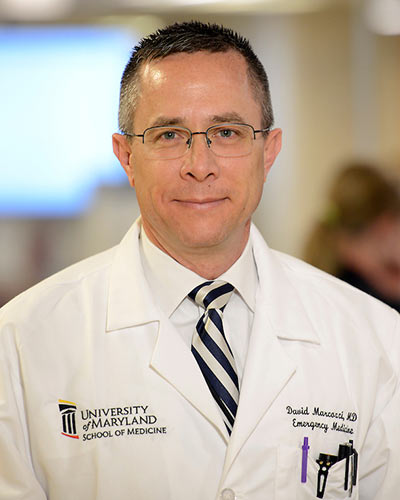
Dr. Marcozzi Has Focused on Improving Health Delivery During Crisis
Jay S. Magaziner, PhD, MS, Hyg, professor and chair of the Department of Epidemiology and Public Health (EPH) at the University of Maryland School of Medicine (UM SOM), along with UM SOM Dean E. Albert Reece, MD, PhD, MBA, announced today that David Marcozzi, MD, MHS-CL, FACEP, an associate professor in the UM SOM Department of Emergency Medicine, has been named as Co-Director of the UM SOM Program in Health Disparities and Population Health, which is based in EPH.
In this new capacity, he will help oversee the program, which combines research, education, and service to advance health equity by addressing the critical health issues often influenced by social determinants of health.
Dr. Marcozzi joins the program’s leadership team of Co-Directors Wendy Lane, MD, MPH, and J. Kathleen (Kate) Tracy, PhD. Both Dr. Lane and Dr. Tracy are Associate Professors in EPH. Each Co-Director will focus on a different aspect of health disparities and population health. Dr. Lane will emphasize community-based research; child maltreatment prevention, community outreach, and policy; Dr. Tracy will emphasize disparities in women’s health and population health research and medical informatics; and Dr. Marcozzi will emphasize integration with healthcare delivery, sustainable fiscal approaches to population health and health policy development.
“The tenets of the triple aim are key to moving our State and nation forward,” said Dr. Marcozzi. “Embracing the multidisciplinary approach to population health isn’t easy, but it is essential. I am excited about the opportunity to work with Dr. Lane and Dr. Tracy on this issue. Working together, I am confident we can help guide UM SOM, our state and nation toward improved health care for all.”
The program consists of over 64 faculty and subject matter experts in EPH and other UM SOM departments. It has a broad multidisciplinary scope and focuses on studying and improving many health and healthcare issues, including cancer disparities, disparities in maternal and child health, aging and health disparities, population health, global health, HIV, and women’s health. The effort was formerly known as the Program in Minority Health and Health Disparities in Education and Research, and was led by the Claudia Baquet, MD, MPH, who retired in 2015 after decades at the school.
Years of Federal Service
 A Fellow of the American College of Emergency Physicians, Dr. Marcozzi is the Director of Population Health in the UM SOM Department of Emergency Medicine, and serves as the Assistant Chief Medical Officer for Acute Care at the University of Maryland Medical Center. He has held positions at the United States Department of Health and Human Services and the White House. Serving last as the Senior Advisor for Emergency Preparedness and Acute Care within the Centers of Medicare and Medicaid Services, Dr. Marcozzi was involved with health delivery reform efforts, clinical quality standard and measure development. Prior to that, he served as Director of the National Healthcare Preparedness Programs in the Office of the Assistant Secretary for Preparedness and Response. A Colonel in the U.S. Army Reserves, Dr. Marcozzi has been mobilized four times since 2001 and is now assigned to the U.S. Army Special Operations Command as a Deputy Surgeon.
A Fellow of the American College of Emergency Physicians, Dr. Marcozzi is the Director of Population Health in the UM SOM Department of Emergency Medicine, and serves as the Assistant Chief Medical Officer for Acute Care at the University of Maryland Medical Center. He has held positions at the United States Department of Health and Human Services and the White House. Serving last as the Senior Advisor for Emergency Preparedness and Acute Care within the Centers of Medicare and Medicaid Services, Dr. Marcozzi was involved with health delivery reform efforts, clinical quality standard and measure development. Prior to that, he served as Director of the National Healthcare Preparedness Programs in the Office of the Assistant Secretary for Preparedness and Response. A Colonel in the U.S. Army Reserves, Dr. Marcozzi has been mobilized four times since 2001 and is now assigned to the U.S. Army Special Operations Command as a Deputy Surgeon.
Focus on Protecting Children
A national leader in child abuse and neglect pediatrics, Dr. Lane was recently named one of Baltimore’s top pediatricians. She is one of only a small number of pediatricians nationwide specializing in child abuse and neglect. Dr. Lane is an Associate Professor in the Department of Epidemiology and Public Health. She directs the department’s Preventive Medicine Residency Program and Community Outreach for the MPH Program. A leader in community-based child maltreatment research, community outreach, and policy, Dr. Lane’s research focuses on health disparities in relation to child health promotion and child maltreatment. Dr. Lane also serves on the Child Protection Team at the University of Maryland Medical Center. In addition, she is one of the lead faculty responsible for the recently developed social justice track at UM SOM.
Working to Understand Disparities in Care
Dr. Tracy is Vice-Chair of Research Services in EPH, and Research Director of the Center of Excellence in Problem Gambling. She is a leader in informatics, and in research on disparities in women’s health and population health. Her research focuses on disparities in cervical cancer treatment in West Africa. She is collaborating on a University of Maryland, Baltimore initiative led by Joanne Dorgan, PhD, MPH, Professor of Epidemiology & Public Health, and Cher Dallal, PhD, Assistant Professor of Epidemiology and Public Health at UMCP, to identify causes of disparities in cancer outcomes.
“The school works extremely hard to address issues of disparity and access,” said UM SOM Dean E. Albert Reece, MD, PhD, MBA, who is also Vice President, Medical Affairs, University of Maryland and the John and Akiko K. Bowers Distinguished Professor. “Over the years, ample research has shown that health and inequality are inextricably connected. Dr. Marcozzi and his co-leaders are working hard to point the way toward workable solutions to this difficult set of issues.”
About the University of Maryland School of Medicine
Celebrating its 210th Anniversary, the University Of Maryland School Of Medicine was chartered in 1807 and is the first public medical school in the United States and continues today as an innovative leader in accelerating innovation and discovery in medicine. The School of Medicine is the founding school of the University of Maryland and is an integral part of the 11-campus University System of Maryland. Located on the University of Maryland’s Baltimore campus, the School of Medicine works closely with the University of Maryland Medical Center and Medical System to provide a research-intensive, academic and clinically based education. With 43 academic departments, centers and institutes and a faculty of more than 3,000 physicians and research scientists plus more than $400 million in extramural funding, the School is regarded as one of the leading biomedical research institutions in the U.S. with top-tier faculty and programs in cancer, brain science, surgery and transplantation, trauma and emergency medicine, vaccine development and human genomics, among other centers of excellence. The School is not only concerned with the health of the citizens of Maryland and the nation, but also has a global presence, with research and treatment facilities in more than 35 countries around the world. medschool.umaryland.edu/
Learn More
Contact
Office of Public Affairs
655 West Baltimore Street
Bressler Research Building 14-002
Baltimore, Maryland 21201-1559
Contact Media Relations
(410) 706-5260
Related stories
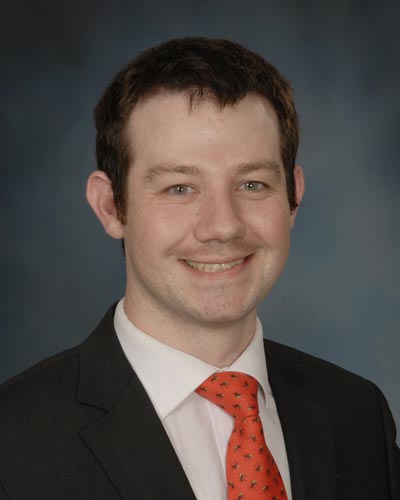
Wednesday, November 06, 2024
Genomic Databases Need More Diversity
It is commonly known that most genomic databases are biased toward people with European ancestry. Scientists have warned that leaving out other populations could skew results in areas such as drug development, diagnostic testing, and polygenic risk scores—which looks at many genetic variations in a person’s DNA to predict their disease risk.

Wednesday, June 16, 2021
UM School of Medicine Researchers Awarded $5 Million NIH Grant to Improve Use of Genetic Risk Scores in Diverse Populations
Researchers at the University of Maryland School of Medicine (UMSOM) have received a $5 million federal grant to pool genomic information from existing and new datasets – predominantly in African and African American populations -- in order to calculate the risk of developing specific diseases. They will use sophisticated modeling and genetic datasets to calculate the risk, known as a polygenic risk score, with an emphasis on studying people from different ancestries.
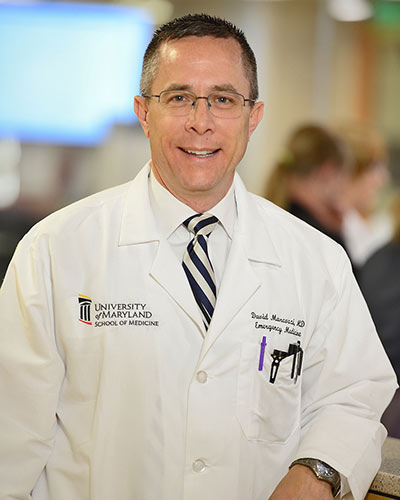
Friday, October 20, 2017
University of Maryland School of Medicine Study Finds That Nearly Half of U.S. Hospital-Associated Medical Care Comes From Emergency Rooms
In the first study to quantify the contribution of emergency department care to overall U.S. health care, researchers at the University of Maryland School of Medicine (UMSOM) have found that nearly half of all US hospital-associated medical care is delivered by emergency departments. The paper highlights the major role played by emergency care in health care in the U.S. In recent years, the percentage of care delivered by emergency departments has grown significantly.
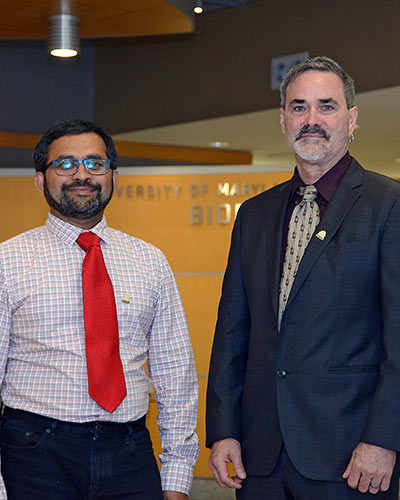
Friday, September 29, 2017
University of Maryland School of Medicine Researchers Identify Millions of New Genes From Bacteria Living on and in the Human Body
A new study of the human microbiome—the trillions of microbial organisms that live on and within our bodies—has uncovered millions of previously unknown genes from microbial communities in the human gut, skin, mouth, and vaginal microbiome, allowing for new insights into the role these microbes play in human health and disease.
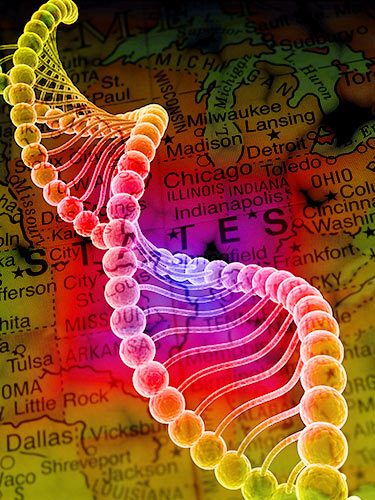
Wednesday, May 31, 2017
When It Comes to Health, Does Zip Code Matter More than Genetic Code?
A range of powerful evidence shows unequivocally that where you live, as well as your social circumstances, play a huge role in your health. This was the message delivered by Anthony B. Iton, MD, JD, MPH, Senior Vice President of Healthy Communities at the California Endowment, in a lecture April 18 at the University of Maryland School of Medicine (UM SOM).

Tuesday, April 04, 2017
University of Maryland School of Medicine Physician Scientist Receives Top Award in Epidemiology from Physician's Group
Mary-Claire Roghmann, MD, MS, Professor of Epidemiology and Public Health, and Associate Dean for Physician Scientist Training and Transdisciplinary Research Advancement, at the University of Maryland School of Medicine (UM SOM), as well an Associate Hospital Epidemiologist and Investigator at the VA Maryland Health Care System, has been awarded the Alvan R. Feinstein Memorial Award from the American College of Physicians (ACP). The award was presented in San Diego at ACP’s Convocation Ceremony on March 30, 2017, during its annual scientific conference, Internal Medicine Meeting 2017.
